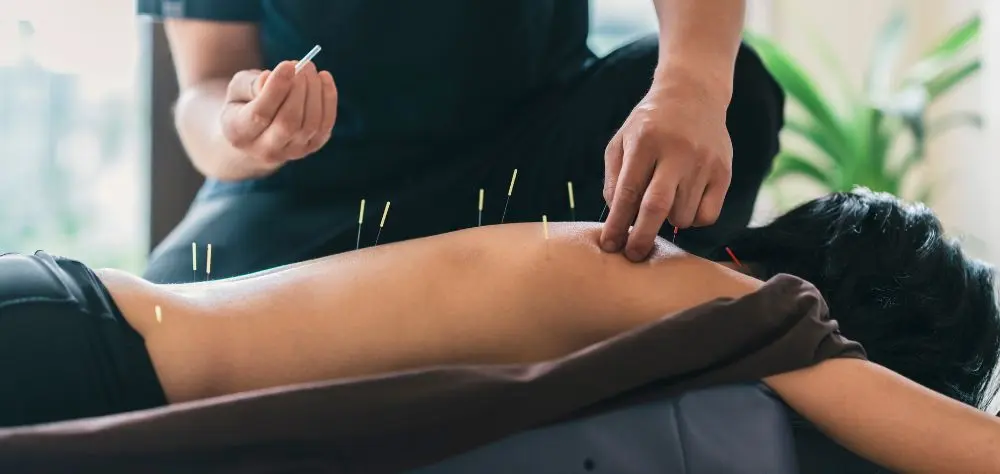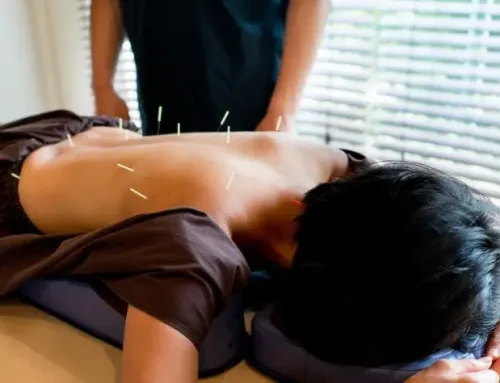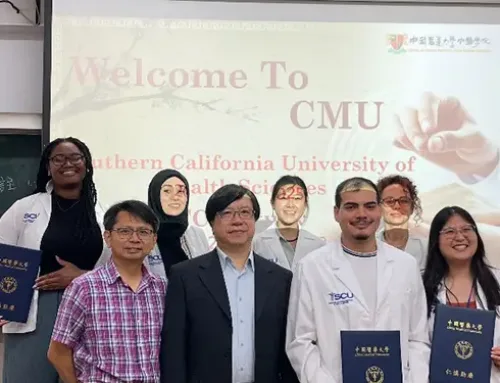Acupuncture Education: Trends, Schools, and Best Hybrid Online Options

Acupuncture education is evolving—faster, more flexible, and more accessible than ever before. As demand grows for holistic, whole-person care, more students are exploring how to enter the field without putting their lives on pause. Hybrid and online learning models are changing what’s possible for aspiring practitioners.
But with more programs to choose from, knowing where to begin—and what to look for—can be a challenge. From emerging trends in integrative health to the structure of hybrid formats and the importance of accreditation, there are key differences that shape the quality of your education and your future in the field. The right program doesn’t just teach acupuncture—it prepares you to practice it with purpose.
Ancient Wisdom, Modern Classroom: Today’s Acupuncture Programs
Acupuncture education is transforming, but its core is still intact. While the settings and tools have evolved, the philosophy remains the same: restore balance, treat the whole person, and look beyond symptoms to find—and heal—the root cause.
Grounded in Tradition: What Hasn’t Changed
Despite curriculum updates and hybrid formats, the heart of acupuncture education still beats with Traditional Chinese Medicine principles. Programs continue to emphasize:
- Balance between internal systems and external environments
- Holistic care that considers body, mind, and spirit
- Root-cause healing over symptom-chasing
- Long-term practitioner-patient relationships built on trust and empathy
- Herbal pharmacology and classical texts as essential study areas
These values are the foundation—unchanged, uncompromised, and essential for truly effective practice.
What’s New: Integrating Biomedicine and Evidence-Based Tools
Today’s programs have expanded their lens. Acupuncture students now study anatomy, physiology, diagnostic imaging, and case management—so they can communicate fluently with other healthcare providers and support patients who are navigating both Western and Eastern medicine.
Programs are also increasingly focused on research literacy and evidence-informed care, so you can back up your clinical choices with data and tradition. The end result: acupuncturists who can hold their own in both a wellness center and a hospital.
Still Hands-On: Clinical Training That Stays Core
Even in the age of online learning, acupuncture education is still deeply hands-on. Students complete hundreds of supervised hours in clinic—treating patients, observing seasoned practitioners, learning to listen and diagnose with care.
This part of your training is as essential as ever. Because real skill doesn’t come from theory alone. It comes from practice, repetition, and learning in the moment.
Choosing Your Path: Master’s vs. Doctorate—What’s the Difference?
Whether you’re just getting started or looking to level up, you’ve got two main degree options:
- Master of Acupuncture and Chinese Herbal Medicine (MAcCHM): This is the foundational path, preparing you for licensure and clinical practice in most U.S. states.
- Doctor of Acupuncture and Chinese Herbal Medicine (DAcCHM): A doctoral-level degree with additional training in biomedicine, integrative healthcare, and research—often preferred by students aiming for hospital privileges, academic careers, or advanced specialization.
The Master’s may be ideal for those entering the field from a non-healthcare background or without a bachelor’s degree. The Doctorate offers added depth for students who want broader opportunities and a stronger presence in interdisciplinary settings.
Before You Apply: What Makes a Hybrid Acupuncture Program Worth Your Time
A good hybrid acupuncture program doesn’t just make learning more convenient—it makes it more effective. When designed well, these programs blend flexibility with the hands-on rigor this field demands. The key is knowing what should actually be included.
1. Structure That Supports Learning—Not Just Convenience
Hybrid shouldn’t mean “mostly online.” A worthwhile hybrid acupuncture program blends structured virtual learning with meaningful in-person or clinical experiences. At its best, the format includes:
- Live online lectures that allow for discussion and real-time interaction
- Visual tools and case-based learning to help bring theory to life
- Optional in-person intensives or lab weekends for deeper clinical skill-building
- Local clinical placements so students can apply knowledge close to home
The goal isn’t to cut corners—it’s to create balance between academic, personal, and professional life while maintaining the quality of education.
2. Technology That Deepens Understanding
The best hybrid acupuncture programs use technology not as a substitute for teaching, but as a tool to enhance it. Instead of relying on passive slides or pre-recorded lectures, they incorporate interactive, visual platforms that support deeper understanding and long-term retention. High-quality programs integrate tools like 3D anatomy software to help students visualize complex systems, simulation modules that walk through clinical cases, and video demonstrations that break down technique and diagnostic methods in real time. These tools don’t replace hands-on experience—they prepare students for it. When used well, technology makes learning more intuitive, more engaging, and far more effective.
3. Clinical Experience That Starts Early
Clinical training is where students shift from learning concepts to applying them. The strongest programs don’t wait until the final year to send students into clinics. Instead, they build in clinical experience as early as year one—developing confidence, diagnostic skills, and real-time decision-making from the start.
This early exposure doesn’t just improve learning, it grounds it. Repetition, observation, and mentorship are critical for mastering the subtle, hands-on nature of acupuncture.
4. Flexibility That Meets You Where You Are
A quality program acknowledges that not every student follows the same path. That’s why many hybrid programs offer:
- Part-time or extended tracks
- Evening or weekend course options
- Pathways that don’t require a bachelor’s degree (depending on state and school)
The structure matters—but so does the support. Programs that offer academic advising, technical support, and accessible faculty help ensure students succeed no matter their starting point.
SCU’s Acupuncture Programs: Rooted in TCM, Built for the Real World
At Southern California University of Health Sciences (SCU), we’re redefining what acupuncture education can look like—rigorous, flexible, and rooted in both tradition and innovation. That’s why our Master of Acupuncture and Chinese Herbal Medicine program combines classical Chinese medicine with modern Western sciences. From your first trimester, you’ll study acupuncture points and pulse reading alongside anatomy, physiology, and clinical diagnostics.
Early and Expansive Clinical Training
You won’t have to wait years to step into a clinic. At SCU, clinical rotations start in year one, giving students time to build confidence and sharpen skills through real patient care. Our clinical network reaches far beyond campus, and we’re proud to be the only acupuncture program in the U.S. with placement opportunities at Children’s Hospital of Orange County (CHOC), a nationally ranked teaching hospital. From integrative clinics to community-based care, we make sure your clinical training is diverse, relevant, and deeply hands-on.
Flexible Formats, Real Support
Life doesn’t pause for grad school. That’s why we offer full-time, part-time, and evening hybrid tracks—so you can pursue your education without stepping away from everything else. And if you haven’t earned a bachelor’s degree yet? You’re still eligible to apply. Students with 90 or more qualifying college credits can be accepted into the program through one of our alternative entry pathways.
Hybrid Learning That Actually Works
Our students don’t sit through static PowerPoints—they engage with 3D anatomy tech, cadaver lab experiences, and interactive platforms like DITKI, which turn complex topics into visual, memorable lessons.
These tools are intentionally selected to reinforce core content and support diverse learning styles—because online learning should be as dynamic and effective as the classroom.
A Bridge to the Doctorate, Built In
Want to go further? SCU makes it seamless. Our Master’s students can complete their Doctor of Acupuncture and Chinese Herbal Medicine (DAcCHM) with just 16 additional credit hours. Whether you’re aiming for clinical leadership, teaching, or research, that extra step can take your impact to the next level—without starting over.
Take the Next Step with SCU
At SCU, acupuncture education is built to be practical, comprehensive, and aligned with the real demands of the field. From early clinical training and flexible formats to a curriculum that blends Eastern and Western medicine, our program is structured to give students the knowledge and hands-on experience they need to succeed.
If you’re ready to take the next step toward a career in acupuncture—and want a program that’s built with purpose—explore our admission requirements and apply today.
FAQs
What should I look for in a quality acupuncture education program?
Look for a program with strong clinical training, an integrative curriculum, experienced faculty, and national accreditation. Bonus points for hybrid flexibility and modern learning tools that support hands-on skills.
What’s the difference between a Master’s and Doctorate in acupuncture?
A Master’s qualifies you for licensure. A Doctorate adds advanced clinical training, research, and often access to hospital or academic roles. Both are respected—it depends on your career goals.
Can I study acupuncture without a healthcare background?
Yes. Many students come from unrelated fields. Some programs, like ours, allow entry without a bachelor’s degree, though prerequisites vary. What matters most is commitment and readiness to learn.
When does clinical training begin at SCU?
Clinical training begins in the first year. We believe early hands-on experience builds confidence and prepares students more thoroughly for advanced clinical rotations.
Can I continue to a doctoral degree after the Master’s at SCU?
Absolutely. Our program allows Master’s graduates to complete their Doctor of Acupuncture and Chinese Herbal Medicine with just 16 additional credit hours. It’s a seamless next step.
Related Posts




